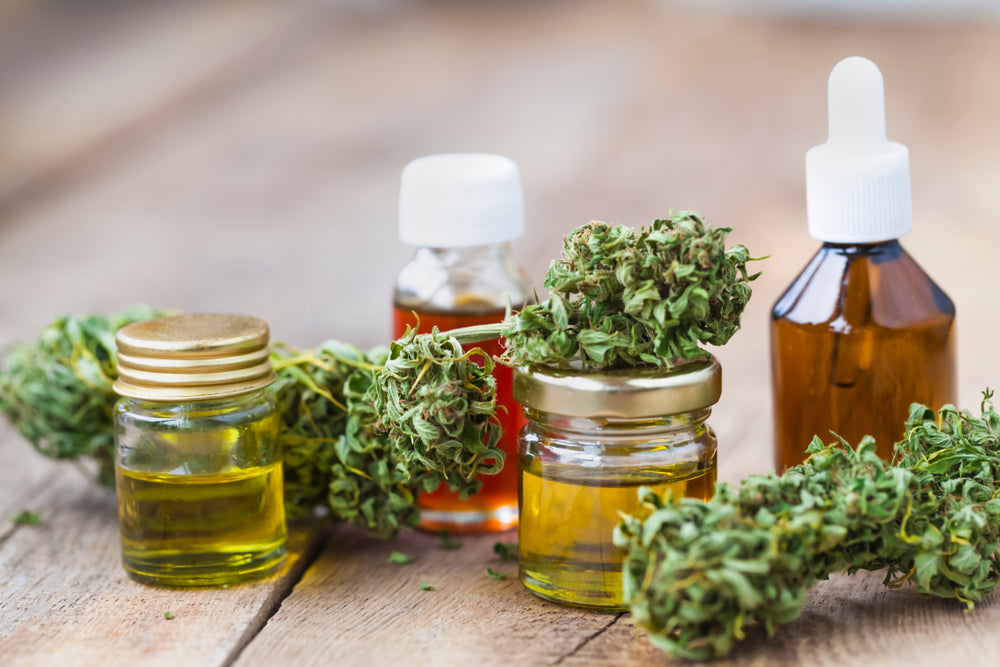- news
- why do premium cbd tinctures use mct oil?
Why Do Premium CBD Tinctures Use MCT oil?
07.27.2020 | Reading Time:Written by: Nelson Lambertus

Share
CBD isn’t the only ingredient in your average CBD oil...and that’s actually not a bad thing.
Why not? Because CBD is so strong that it works best when diluted into oil form. And to accomplish this dilution, something called a carrier oil is needed.
And — just as with CBD itself — not all carrier oils are created equal. Some carrier oils contain healthier fats than others! The right oil can help CBD work better and provide its users with a steady stream of energy, but the wrong carrier oil can trigger an inflammatory reaction that effectively makes CBD less powerful. Here are the details.
Carrier Oils 101
A carrier oil is an oil meant to have CBD carried, or infused, within it. Common carriers include hempseed oil, olive oil, coconut oil, and MCT oil. Carrier oils are CBD oil’s primary inactive ingredient; in fact, most CBD oils contain more carrier oils than they do anything else. Even our ultra-strong 6,000mg CBD oil gets most of its actual volume from carrier oils.
Don’t worry — that’s by design. Undiluted CBD would be too thick and sludgy to take on its own!
Undiluted CBD would be less effective, too. Why? Because CBD, just like vitamin A or vitamin D, is a fat-soluble compound, and its bioavailability increases when it’s consumed with healthy fats.
The carrier oil we use
And one healthy fat stands out from the rest: MCT oil. At FiveCBD it’s the only carrier oil we use.
If you’re wondering what MCT oil is...you’re not alone. MCT is short for medium-chain triglyceride, a unique type of fat that’s uniquely processed by the human body. Despite the fancy name, MCT’s are as natural as it gets, found in everything from coconuts to butter. We simply take the naturally-occurring MCT’s in coconut oil and concentrate them.
Although it’s a saturated fat, MCT’s are metabolized as if they’re carbohydrates — first by the liver, then by the digestive tract. “The shorter chain length chemical profile of MCTs allows them to passively and directly diffuse across the gastrointestinal tract,” explains one study.
This enhanced diffusion leads to all sorts of good stuff. MCT’s “allow for much quicker absorption and utilization” of any active compounds featured alongside them. CBD and other cannabinoids included!
MCT is pro-metabolic, too. It “increases energy, endurance, metabolism, satiety and brain function, especially when compared to other forms of fat [like] olive oil,” explains this guide by Bulletproof. Many users find that MCT oil even blunts their appetite, making it a perfect addition to morning tea or coffee.
The shelf-stable option
There’s one last benefit of using MCT oil that you should know about: it has an incredible shelf life. While other the unsaturated nature of other carrier oils (like olive oil or hempseed oil) means they rapidly degrade when exposed to sunlight, MCT oil doesn’t have this problem.
“This kind of matrix [i.e. coconut/MCT oil] is less susceptible to oxidative degradation than the olive or hemp seed oils.”
- Quality Traits of “Cannabidiol Oils," 2018
All in all, MCT oil is the best carrier oil out there — and we think you deserve the best.

